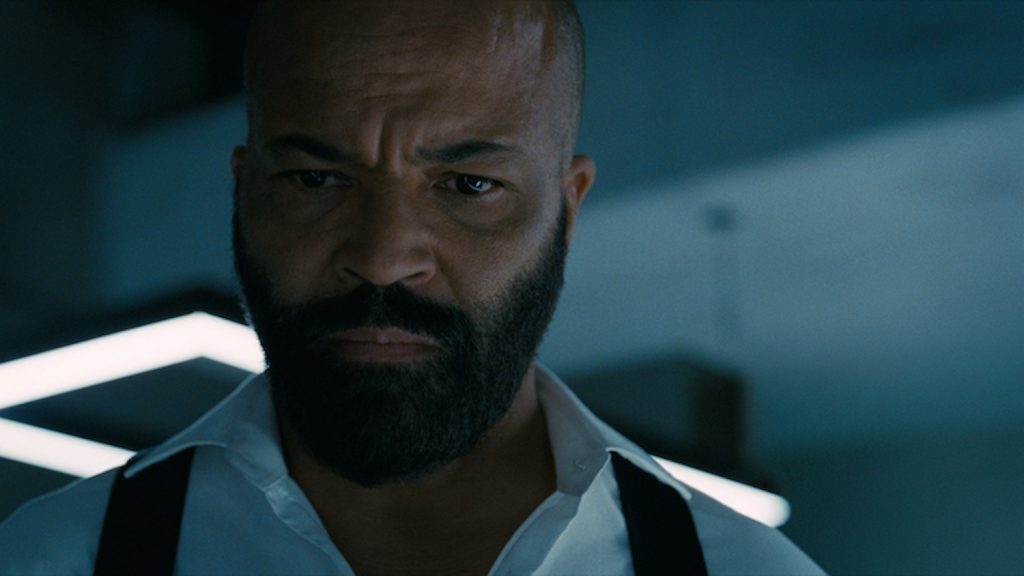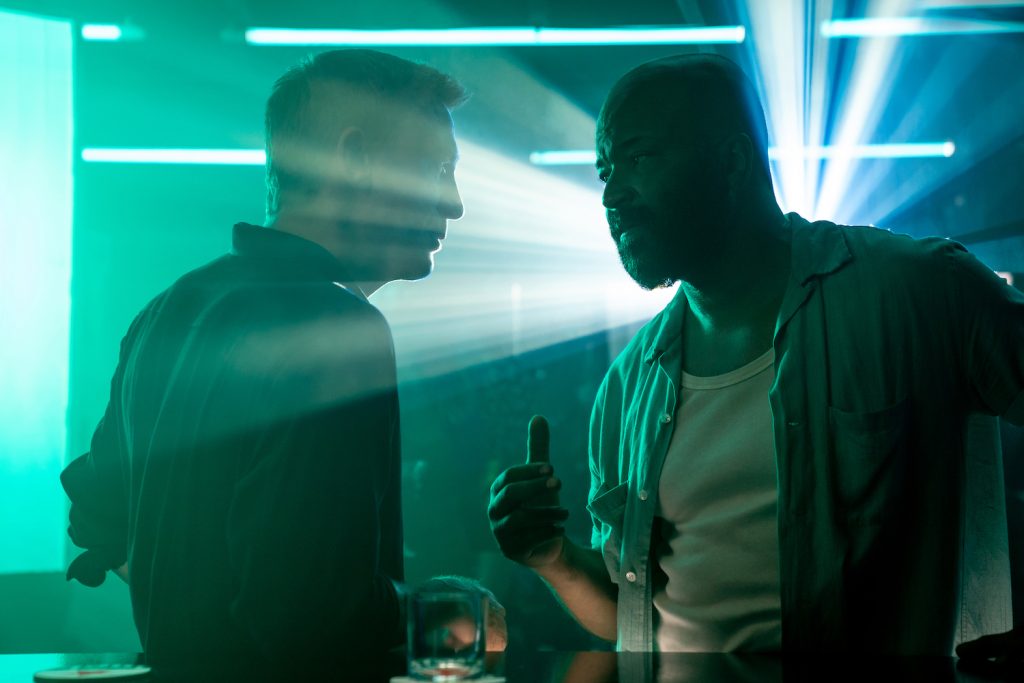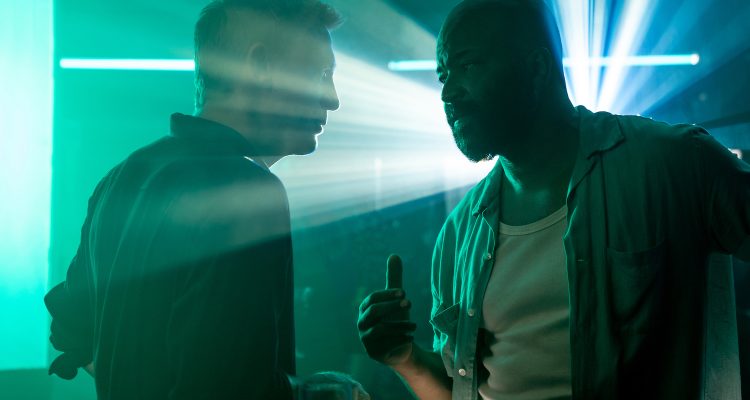Actor Jeffrey Wright has garnered praise throughout his career as one of New York’s most versatile character actors. A Tony and Emmy winner for his work in Angels in America, Wright quickly ascended Hollywood with roles in The Hunger Games and James Bond franchises.
Wright’s gritty take on CIA operative Felix Leiter, opposite Daniel Craig’s Bond in Casino Royale (2006), launched a new era for the iconic spy that ends with this year’s No Time To Die.
On television, Wright has played Bernard Lowe for three seasons on HBO’s acclaimed sci-fi series Westworld. In season three, the rogue A.I. “host” known as Delores (Evan Rachel Wood) leaves the Westworld park for the outside world with some incredibly valuable A.I. pearls.
Wright’s character, also an A.I. being, has a monumental encounter with the widow of the human he was designed to physically emulate as the season closes. Wright discusses the implications of that scene and its reverberations for the future of the series. “Bernard’s unchained by his own limitations for perhaps the first time,” says Wright.
Wright also spoke to Awards Focus about hisenduring relationship with Daniel Craig’s 007, filming No Time To Die, and the possible future of his Felix Leiter beyond Craig’s tenure as Bond.
Awards Focus: How was it leaving the Westworld park in season three?
Jeffrey Wright: I loved the adventure of extending out into what is essentially a new park. This world set in 2058 resembles the world of 2020 in remarkable ways. I enjoy when the show flips things around, it takes assumptions and skins them and kind of flips them inside out so that now in this case, we, the hosts, are guests.
We are working toward a new type of freedom for the characters and a new type of self determination while still aspiring toward this idea of human-ness. Where do you find that best?
AF: Was there a scene this season that when you got to set, it went in a new direction or surprised you in some way?
Wright: I think the scene in the finale with Gina Torres’ character Lauren, where Bernard discovers this human, flesh and bone, blood, spirit, mind that he had only been programmed to know… that was really enlightening for me when I read it.
I don’t recall being overwhelmed by it, but when I walked onto the set and rehearsed it, I realized the implications of him finding this woman who is the mother of the child that has haunted him as this cornerstone.
Now, this thing that was essentially an abstraction for him, becomes very real. That really just blew me away and I was overcome with emotion. Lauren gifts Bernard the knowledge of what humanness is, which allows him a type of freedom and perhaps a difficult contentedness and a way to go forward. Bernard’s unchained by his own limitations for perhaps the first time.

AF: There’s remarkable subtext that goes on in the character of Bernard’s throughout the first three seasons. But also in that scene, how important is that as you’re working in the text and you’re working through the scripts, looking at what is unsaid how important is that to you?
Wright: Three years in we are really beginning to settle into these characters. We have a pretty good foundation on who these entities are and who these individuals are. Now when I read the script I understand where and why this is and what this brings to the layer cake.
We never try to get ahead of Lisa Joy and Jonathan Nolan. It’s really wonderful to have been working on the show long enough to be in sync with what they’re intending relative to the unspoken word and the subtext.
AF: Do you prefer working to a clear objective or do you prefer the uncertainty of not knowing? Is there a freedom in that you find appealing?
Wright: I enjoy the uncertainty and I really enjoy this character’s journey, but also the journey of the narratives that are being played out. So I’ve come to trust what we’re doing… I know this character very well although I may not know where he’s going.
There are times when the steps along the way could possibly be adjusted in certain ways and we have conversations about that. But as far as the long term arc, no, I’m not aware of the final destination. I trust that we’re getting there, but I do occasionally say, “Hey, maybe we could get there in this way,” even though I don’t know where we’re going. This is really a dream gig.
AF: Was the structural change to a more linear storytelling this season easier for your preparation?
Wright: It was a little simpler in terms of math for me this year. The second season was complicated not only because of what the character was going through in terms of deficiencies and equipment failures and things like that that were undermining his ability, his cognitive ability, but also because of the way that we filmed all of Anthony Hopkins stuff first within the first seven weeks of the production schedule because he was going off to do King Lear.
I think from the sixth episode to the end, we filmed all that while I was also filming episodes one and two. So I was getting, you know, those first two episodes and then I’m getting bits from the end and Tony, and then I’m getting rewrites and emails are kind of piling on top of one another and I’m trying to filter through it all. That was complicated. This year was much more, as you say, linear, a little simpler. I didn’t need my calculator quite as much.
AF: With No Time to Die pushed back to November, fans are using the quarantine to go back through the films in this incarnation of Bond. Do you remember the moment you got the offer to play Felix Leiter in Casino Royale?
Wright: I was a huge James Bond fan and I love Jack Lord’s take on Felix Leiter. I thought his Felix was so cool and a great partner for Sean Connery’s Bond. I remember the call from my agent who said, “Hey, just had a conversation with Barbara Broccoli. She wants you to do the next James Bond and they’re going to send the script. I think it’s some CIA guy.”
It immediately clicked that it was Felix Leiter and I was ecstatic. We did Casino Royale and Quantum of Solace in a short span of time, two films in less than four years.
AF: Those first two films captured a gritty realism that the franchise hadn’t previously embraced — no gadgets, a lack of bulletproof vehicles, and an emphasis on stunts and combat choreography.
With Spectre, it felt like a step back in many ways. The fully loaded car, an overdone villain, a finale set piece where Bond saves a damsel in distress. The film suffered from several issues, including a lack of Felix Leiter. Luckily, that’s rectified with No Time to Die. How does it feel being back and are you satisfied with the final chapter in Craig’s saga?
When I was asked to come back for this last one, I was so pleased because I thought there were threads left unresolved with the character. So it’s great to come back and pick up where we last started. Daniel got injured while we were down in Jamaica so we were delayed a bit. These films are a wonderful place to work, it’s a family business, you know, no ego, no nonsense. I can’t wait for people to see what we were up to when we’re allowed back in theaters.

(Photo Credit: Nicola Dove/DANJAQ, LLC /MGM)
AF: Q actor Desmond Llewelyn played the role for seventeen films, and Judi Dench’s M in your franchise was a carryover from Pierce Brosnan’s tenure. Would you be willing to continue as Felix after Craig hands over his license to kill?
Wright: We’ll see how it goes, my Felix is very much paired with his Bond. We crafted the character together and brought a new type of authenticity to the table with this different type of grounded-ness… Daniel’s Bond can handle himself in dark corners.
When we were shooting Quantum of Solace, I wanted to build a Felix who was grounded in a similar way. He was a guy you can see lurking in the shadows and making his way by navigating through and not being intimidated by it. Being one of those guys who operate at the underbelly, he’s not a diplomatic guy. So the pairing of my Felix to Daniels Bond is very harmonious.
AF: During quarantine you’ve kept busy with your nonprofit, Brooklyn For Life. Would you like to share some of those details with our audience?
Wright: Sure, Brooklyn For Life is an initiative I started with two friends of mine who are restaurant owners here in New York. Through it, we help small businesses in Brooklyn stay afloat during this crisis, while also supporting the frontline workers, healthcare workers, and our first responders through the provision of meals. We’ve got fifty small business restaurants that we’re supporting now, ten medical facilities in Brooklyn, all eleven FDNY and EMS stations. We serve on average 2,500 meals per day. We want to keep it going for as long as possible. We’ve served over 120,000 meals now since March 27.
AF: That’s tremendous, those are fantastic numbers.
Wright: Thank you. We’re in this for as long as it’s necessary, so long as we can we can get the resources to do that.


